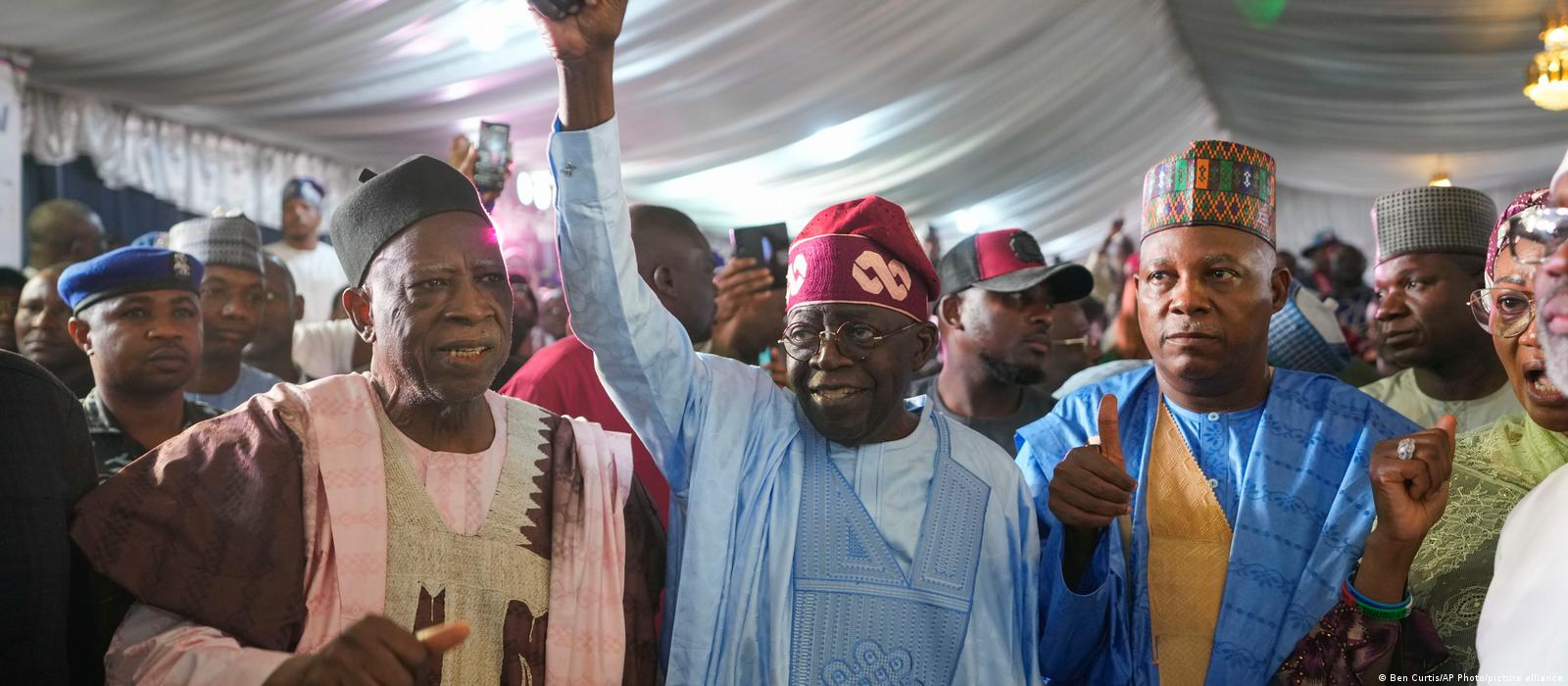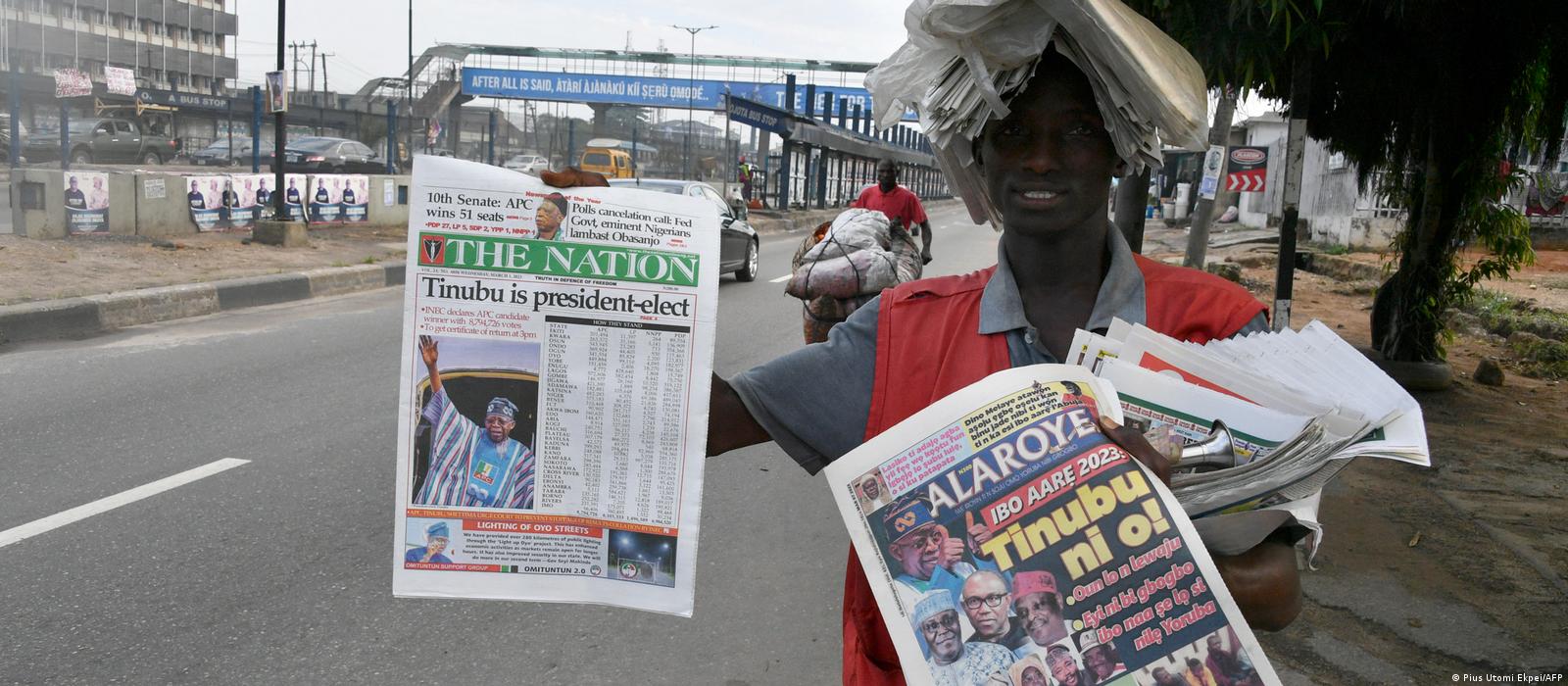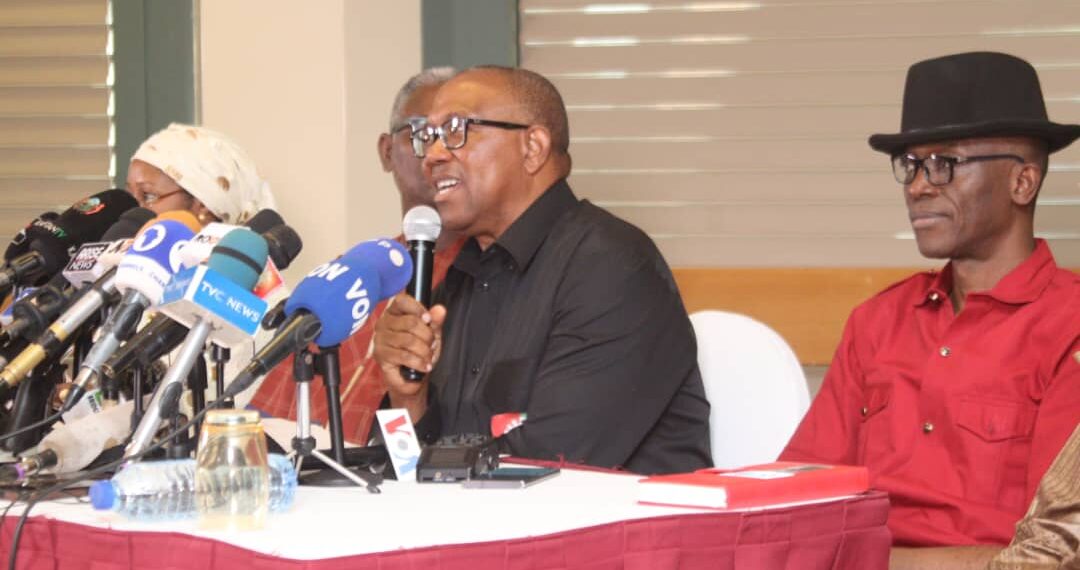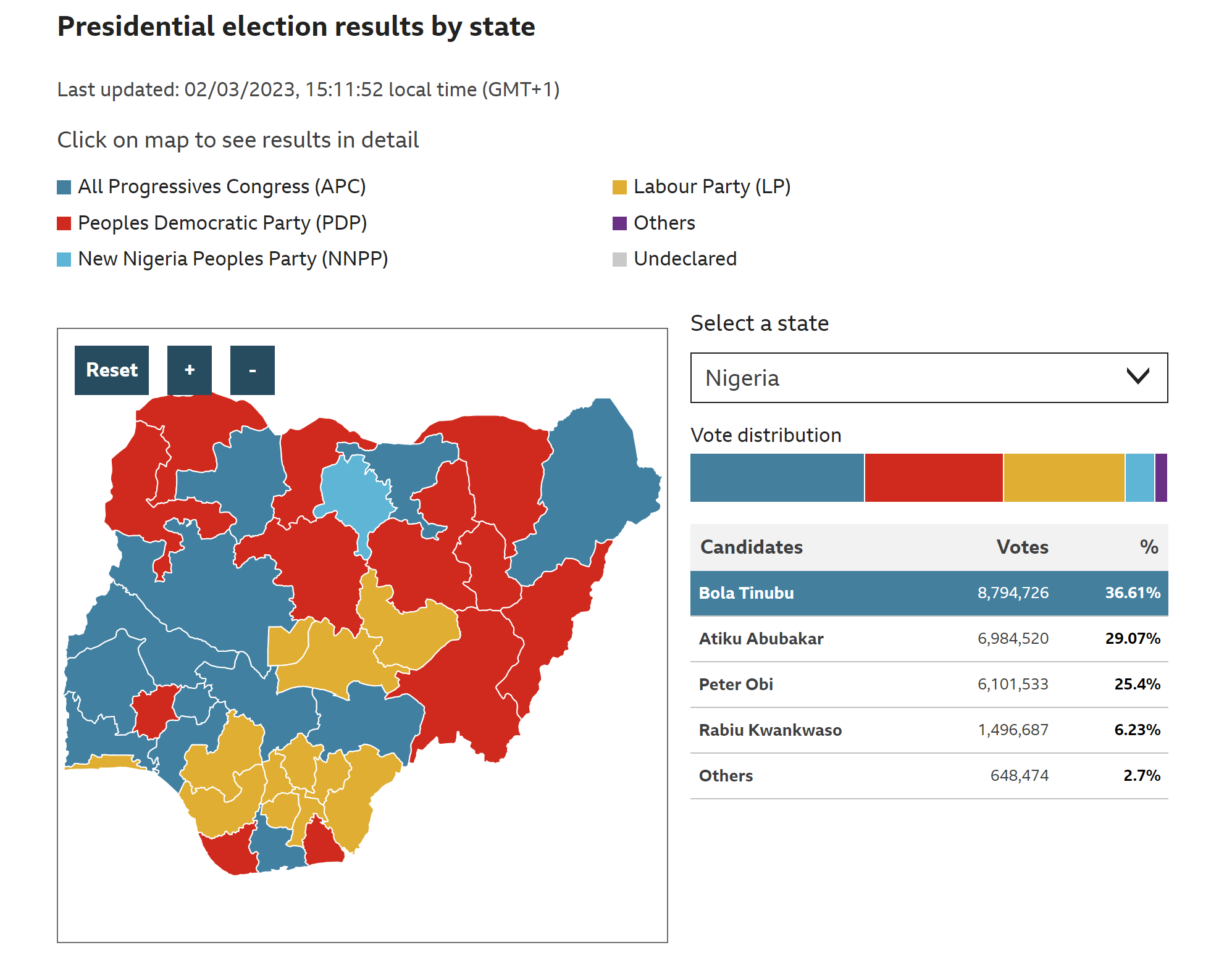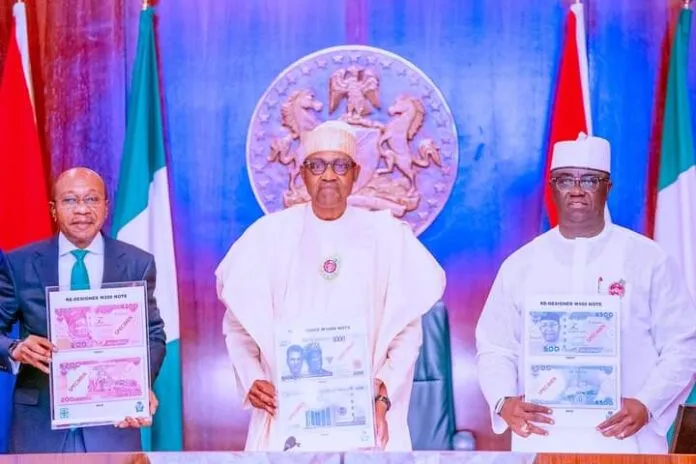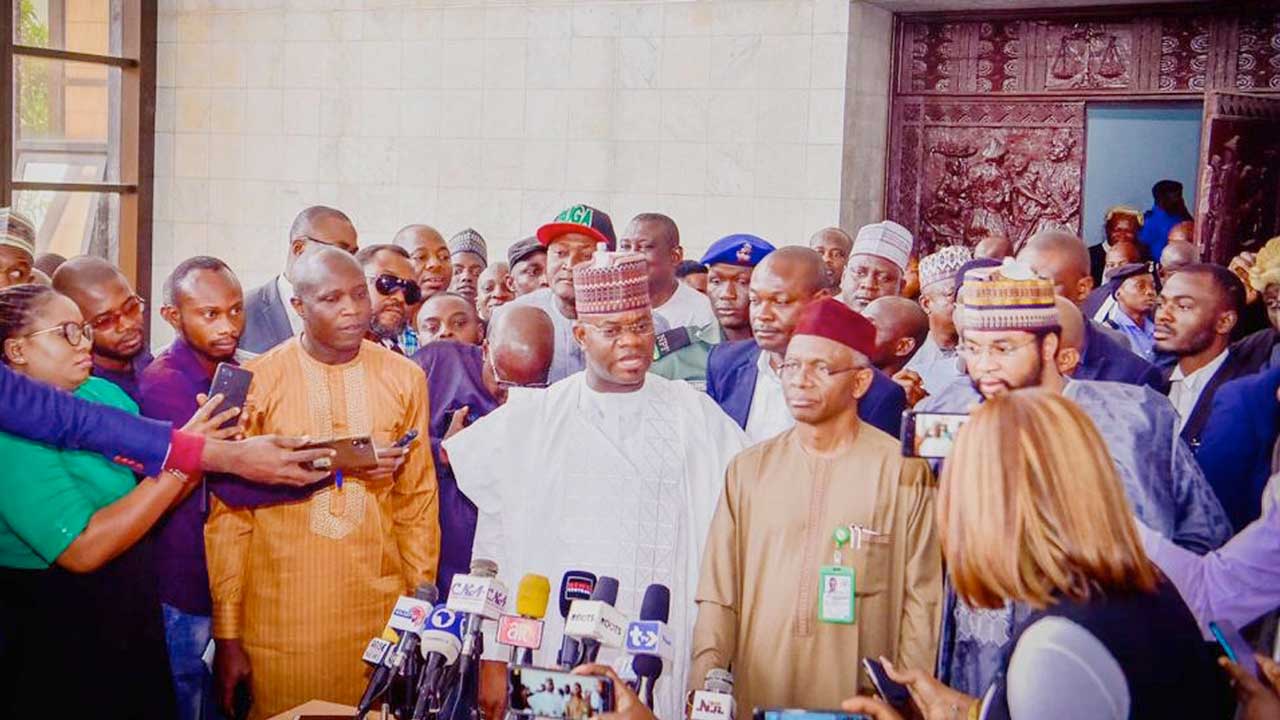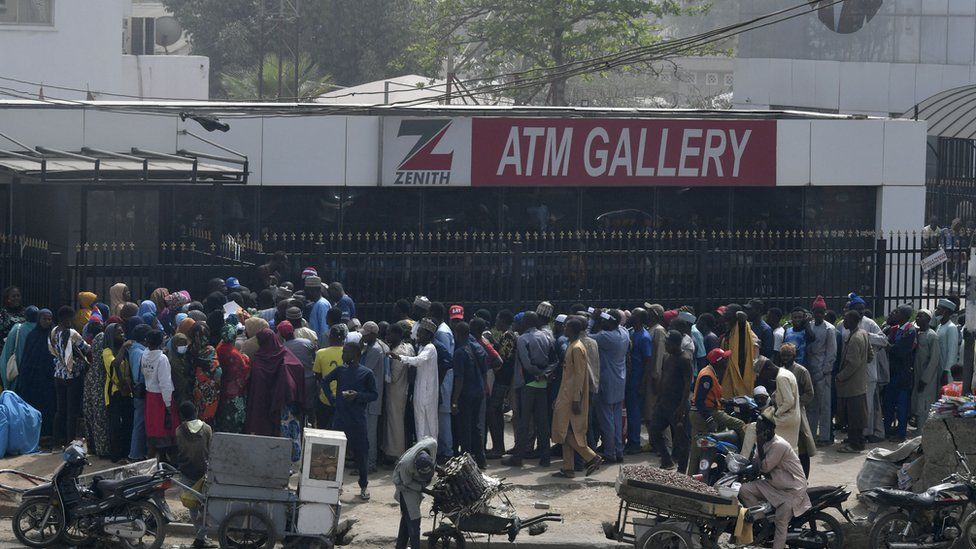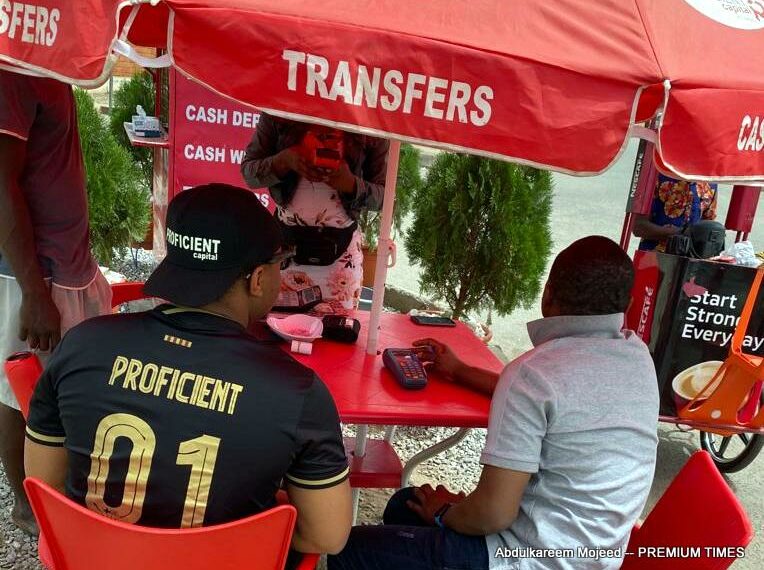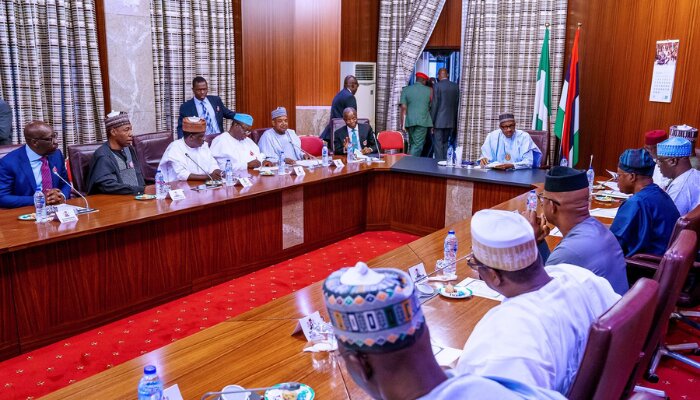The Electoral Process – Successes and Enduring Systemic Challenges
Following the electoral victory of the All Progressive Congress nominee for the presidency on 25 February, observers and critics have continued to discuss the alleged shortcomings in the electoral system. Widely described as a flawed process, the Independent National Electoral Commission (INEC) also wrestled with the same challenges faced during the second round of elections at State level on 18 March. Despite the criticism of the process, it is expected that Bola Ahmed Tinubu will be inaugurated as President on 29 May. So where will a federal government led by the septuagenarian veteran of Nigerian politics take the country? Against this background, other observers and analysts identify some encouraging outcomes of the federal elections.
Perhaps the principal development that could take Nigeria forward as a mature and credible democracy is the emergence of a third force in the political fabric of the country. The emergence of the Labour Party led by Peter Obi was bolstered by a groundswell of support among the youth, who are desperate for change. The momentum began in late 2020 when the #ENDSARS movement emerged, showing the power that social media could have in bringing people together to protest for change. As the Nigerian population surges towards becoming the second most populous democracy within a generation, the emergence of a largely youth supported party could prove critical in the mid to long term.
The second important factor in these elections is that for the first time since the end of military rule in 1999, no former military general was on the ballot.
Thirdly, the ruling party won only 36 percent of the vote, 20 percent less than in 2019.
Finally, in more than half the states, the winning presidential candidate represented a different party than that of the incumbent governor, demonstrating that incumbency is no longer a guarantee of success at the polls.
Nevertheless, Nigeria and in particular INEC, needs to address an array of shortcomings in the way the election was conducted if the country is to become the democratic benchmark for West Africa. International and domestic observers reported a number of issues that INEC should address before the next round of elections at the weekend, including:
- Reports in the months preceding the polls of at least 18 assassinations or assassination attempts on candidates and party leaders.
- Widespread delays in polling station opening, particularly in opposition voting areas. Conversely, in many ruling party strongholds, there were reports from election observers and civil society organizations, that voting started early, turnout was higher, and results were reported more quickly.
- At a small number of polling stations voting was not conducted at all.
- Violent disruptions to the voting process, including attacks on polling stations and tabulation centres.
- Theft and destruction of ballot boxes.
- Questions of manipulation of results in some states.
- INEC’s lack of transparency throughout the election. Challenges with the electronic transfer of results and their upload to a public portal in a timely manner undermined citizen confidence at a crucial moment of the process. Moreover, inadequate communication and lack of clarity by INEC about the cause and extent of these problems created confusion and eroded voters “’trust in the process.”
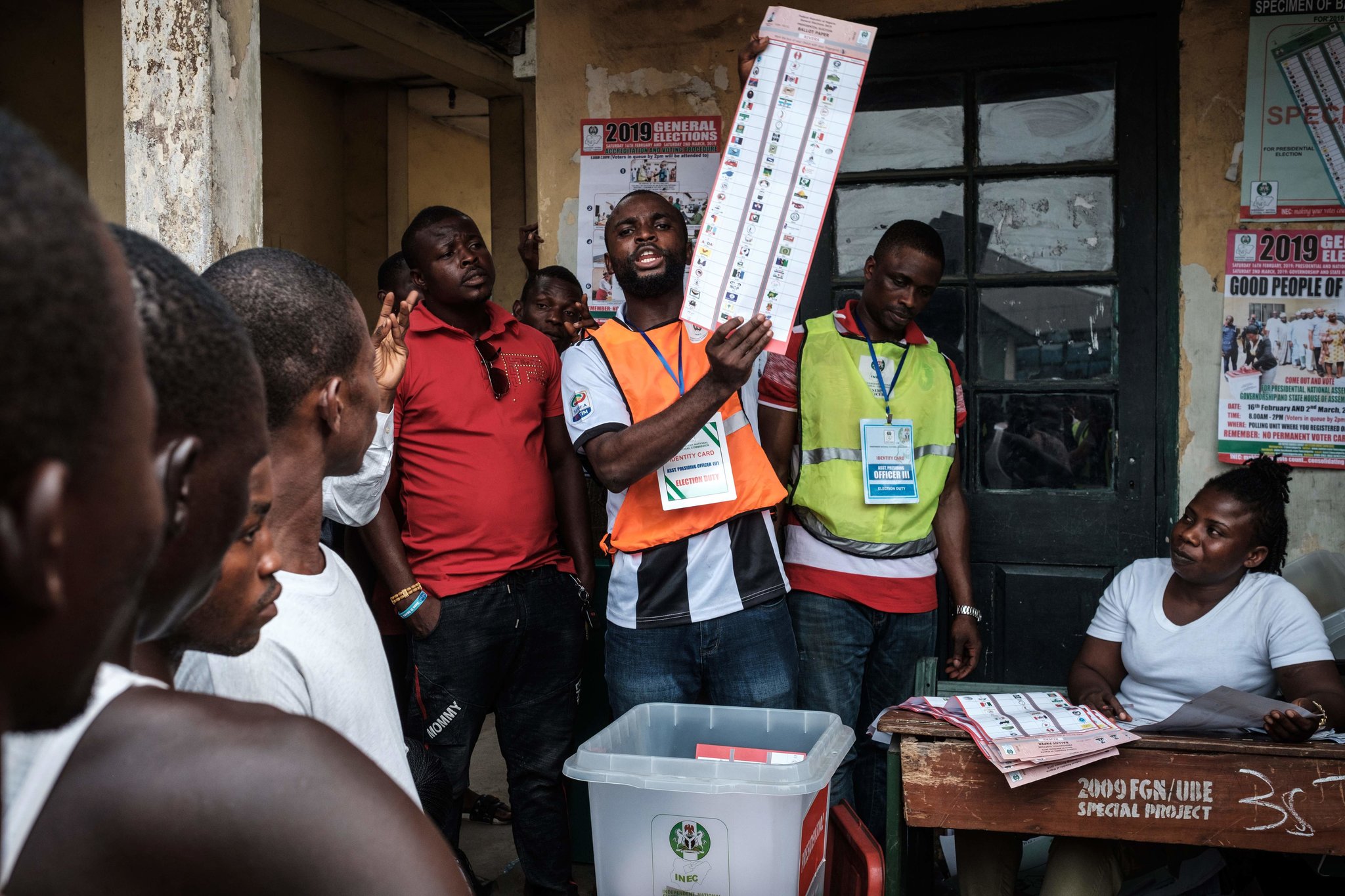
Observers reported that many voters – even those supporting winning candidates – expressed frustration and disappointment. A major question mark remains over the participation figures. With almost 94 million registered voters, 10 million of whom were eligible to vote for the first time, fewer than 25 million votes were cast.
One aspect of the challenges facing voters was the currency crisis which was perceived by some to have a political undercurrent. The shortage of available hard currency impacted on voters’ ability to travel to polling centres, further contributing to voter disenfranchisement and low turnout.
The National Executive Council of AnyiAnyi, an international group of powerful Igbo professionals and experts, led by Anthony Olisa Okolo and Peter Agba Kaluhas, drew attention to the apparent failure of the INEC to gain the trust of the public by conducting free, fair and credible elections.
The group claimed that Igbo people across the country and in Lagos especially have “…been made the scapegoat of widespread rejection of a party and their candidate, leading to the disruption of Igbo businesses, destruction of our people’s shops, properties, and wilful damage and intimidation of voters, leading even to grievous bodily harm.”
Major Errors of Judgement by the Central Bank?
Nigeria has previously and successfully introduced new banknotes several times since independence in 1960. So what caused the issues this time?
The CBN announced the introduction of new banknotes in November 2022, with the changeover to new notes scheduled for mid-December. The transition rapidly disintegrated leaving millions of Nigerians without access to cash, triggering protests and attacks on banks and ATM machine facilities.
The rollout of the currency change was disastrous. The fallout included:
- Severe shortages of the new banknotes.
- Massive decline in business transactions (especially in the informal sector).
- People queueing for hours at banks and ATM machines.
- Attacks on bank staff and destruction of bank property, including ATMs that failed to dispense cash.
The policy also led to lawsuits by some state governors against the Central Bank of Nigeria (CBN) and the Federal Government.
The CBN seemingly failed to carry out a full cost-benefit analysis. It promoted the benefits of the project without apparently making a serious effort to assess the cost – not least of which was the huge impact on economic activity – especially in the informal economy upon which millions of Nigerians rely for sustenance.
It also failed to adequately inform the general population of the aims and the details of the process for the transition to new bank notes, but also appeared to have not carried along the commercial banks, which were left uncertain as to the procedures for transitioning. This extends to failing to issue policy guidelines following the Supreme Court ruling that some old bank notes should continue to be legal tender. This fundamental failure of planning and execution triggered confusion and anger as merchants and businesses continue to reject the old notes, despite the court’s rulings.
The timing of the implementation could hardly have been worse and the timeline for completion of the transition was unrealistic and unsupported by a logical explanation as to why it was so compressed.
The CBN also failed to adequately explain why old and new notes could not coexist. This has now been enforced by the Supreme Court, which has ordered the Bank to comply and implement their earlier ruling.
Undermining the entire process was an opaque strategy with no clear prioritisation of the aims and objectives. This led to conflicting priorities and requirements.
Had the CBN opted for a tandem system of using both sets of notes, it could have withdrawn the old notes over a period and avoided the hardship inflicted on millions of traders and citizens. The aim of reducing the amount of currency circulating outside the banking system has probably been thoroughly undermined, as Nigerians now do not trust the banks to make their hard-earned cash accessible on demand and by default may be even less likely to deposit their cash.
The policy also completely failed to take into account the fact that the Nigerian economy is currently in a state of crisis, with 22% inflation, 33% unemployment– 43% among young Nigerians – and a growth rate of 3%, interest rates at 17.5%, steep declines in the value of the Naira, and burgeoning poverty.
Speculation and commentary in Nigeria and abroad has alluded to the suspicion that the timing of the changeover was politically inspired to suppress vote buying and electoral fraud. While that was achieved – to some extent – the election is still subject to allegations of influencing of INEC officials using hard foreign currency.
The net effect was that Nigerians were already suffering unprecedented hardship when the CBN effectively removed their ability to withdraw cash on demand. To do so during what is perhaps the most heavily contested election in the country’s recent history was reckless and ruined the credibility of the banking system for many Nigerians.
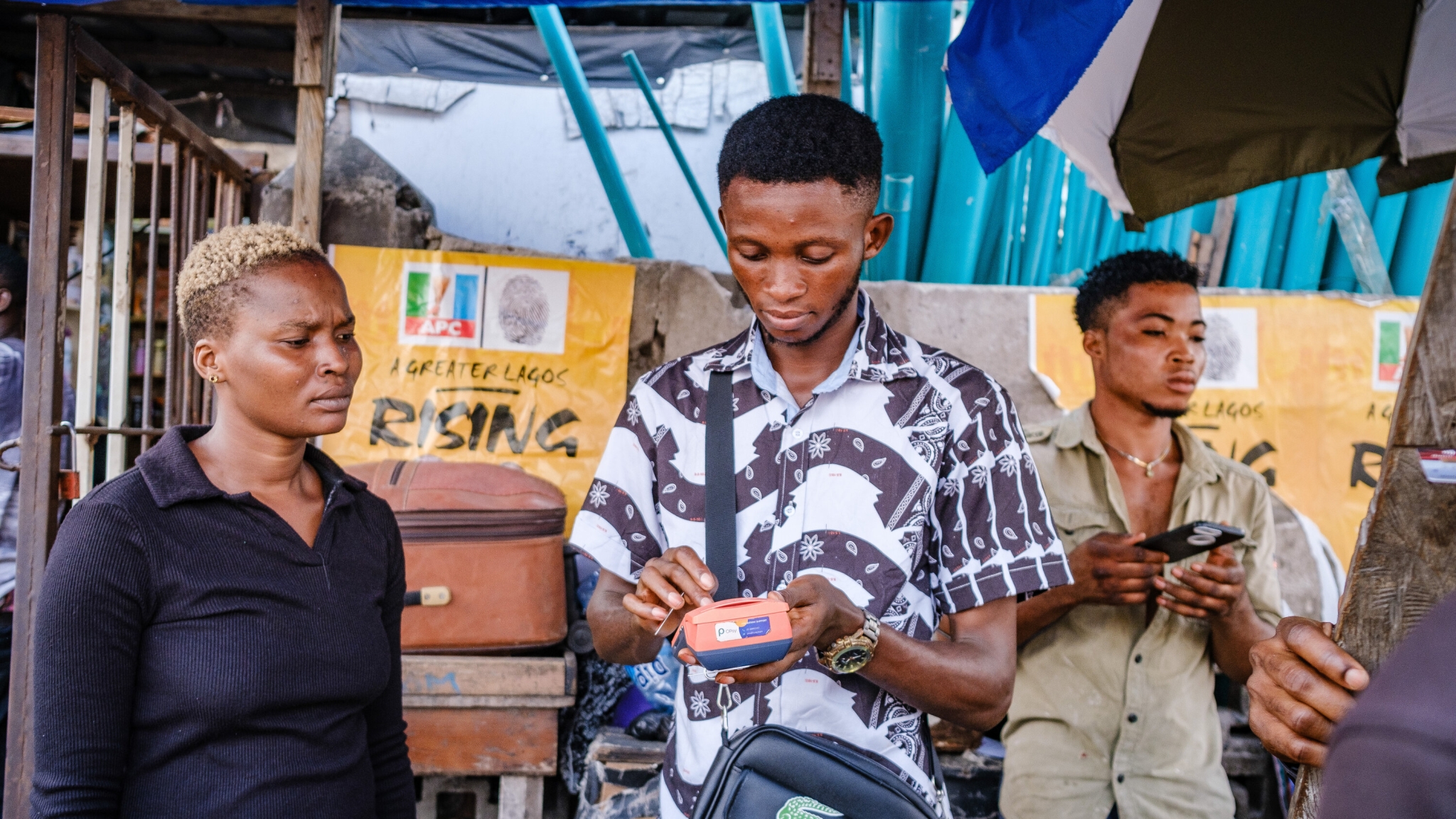
Moving to a Dual Currency System
On 13 March 2023, the CBN announced that it had extended the timeline to withdraw its old currency for redesigned notes. The old notes of 200 naira (43 U.S. cents), 500 naira ($1.08) and 1,000 naira ($2.16) will now remain legal tender until 31 December 2023, which begs the question as to why this could not have been done in the first instance. It is perhaps important to note that the Bank announced that this move was taken in order to comply with a directive from the Supreme Court, which ruled on 3rd March 2023 that the program’s failed implementation was in breach of the law.
However, on 14 March, thousands still queued at banks as neither old nor new notes were available in sufficient volume to meet demands. To date, according to the Lagos-based Centre for the Promotion of Private Enterprises, the impact on the Nigerian economy of the failed process is estimated to have cost 20 trillion naira ($43 billion) as a result of the catastrophic impact on trading activities, the stifling of the informal economy and contraction of the agricultural sector.
Meanwhile, President Elect Tinubu’s Director of Media and Publicity, Bayo Onanuga, has asked President Buhari to sack CBN Governor Emefiele, arguing that his continued governorship of the bank is in conflict with the suspension of the cashless policy by the Supreme Court.
The State Elections
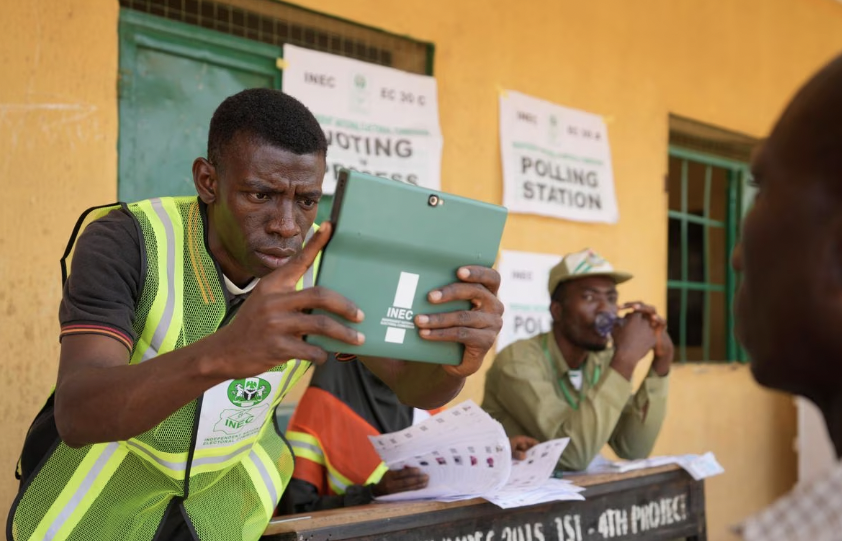
Elections for governors and state assemblies were postponed by a week allegedly due to pending legal cases in the presidential vote by opposition parties who have filed lawsuits demanding the right to examine ballot papers and voting machines from the 25 February 2023 presidential polls.
INEC filed a countersuit saying it needed to reconfigure the Bimodal Voter Accreditation Systems (BVAS) ahead of the gubernatorial elections that had been planned for 11 March. The Supreme Court directed INEC to upload information in the BVAS onto a secure server for opposition parties to review. INEC said the ruling came far too late for the commission to adequately prepare for the elections, while the opposition Labour Party (LP) stated that it wanted to “keep close eye and watch what is happening within the INEC and BVAS.” Amid argument and counterargument, the court has heard allegations of corruption from the LP and a fear that voter confidentiality will be breached if the opposition is granted full access to its Cloud storage system from the INEC. Both opposition parties threatened to protest if access were denied.
Recent activity and trend analysis showed that electoral violence was most likely to occur in Rivers, Lagos and Kano States. It is perhaps significant that these three states are the most important economically and also have the three largest urban populations in the country.
As the country prepared for the 18 March round of election in 28 states, and the Federal Capital Territory (FCT), including 28 governorship and 993 assembly seats, expectations were high regarding the performance of INEC. The Commission did manage to achieve some improvements in the conduct of the polls compared to the earlier Presidential elections, with particular enhancements in the deployment of security officers to the various polling units, more efficient distribution of election materials, and more timely opening of the polling centres. According to a board member of Yiaga Africa, Ezenwa Nwagwu, during the Governorship and State Assembly elections the INEC Result Viewing portal (IReV) functioned optimally and electronic voter accreditation using the Bimodal Voter Accreditation System (BVAS) was successfully implemented in a significant number of polling stations.
The Nigeria Civil Society Situation Room raised concern over attacks being carried out in some parts of the country and noted that there was still a long way to go before the country achieves a truly credible and transparent electoral system. A well-respected civil society monitoring organisation, Yiaga Africa, stated that its observers had recorded 216 critical incidents, including vote-trading, violence, ballot-snatching and voter-suppression. The body reported irregular activity in approximately 5% of polling units, including destruction of election materials, arguments and quarrels between party agents, and fighting among party supporters, among others. Given the country’s election history, irregularities in just one in twenty polling centres is testament to the focus INEC has placed on delivering a credible election.
Other reporting indicates that killings occurred in Benue, Kano, Ebonyi, Cross Rivers, Gombe, and Rivers State, with some of the fatalities recorded resulting from security forces responding to acts of violence and ballot box snatching by political thugs and voter intimidation. Suppression by non-state elements was reported in Lagos, Gombe, Edo, Kano, Enugu, Imo, Bayelsa, and Rivers. The elections took on an ethnic character in Lagos where some voters claimed they were prevented from voting because of their ethnicity and/or perceived party affiliation. Similar activity was reported in Sokoto state in the north-west, Kano in the north, and Port Harcourt in the Niger Delta.
Some vote buying is alleged to have occurred in several states and this is supported by reports of party officials being arrested in possession of very large amounts of cash in Lagos and Rivers states. Party agents were observed in some location asking voters to declare who they had voted for.
Security forces personnel generally performed well during the state gubernatorial and senate elections, with notable successes in Lagos, where a ballot box snatcher was rescued from a lynch mob, and in Imo State where abducted INEC personnel were rescued. One observer organisation reported that almost all voting centres had at least two security personnel present. The State saw incumbent Governor Babajide Sanwo-Olu of the APC win a solid victory. Nevertheless, Lagos State experienced some irregularities. Unconfirmed media reports suggest the security forces responded to 24 calls for assistance in the State between the opening of the polling centres at 08:30 am and 13:30 pm. The areas of the city affected included Oshodi, Jakande Estate, Ejigbo, Ajao and Oke-Afa. The resounding victory of Sanwo-Olu, with more than 736,000 votes over the second place Labour Party candidate, Gbadebo Rhodes-Vivour, who secured 292,000 votes, raises an interesting discussion about how the APC managed to turn the vote around in a state where the LP voted solidly against the APC and for the LP in the presidential elections.
Despite a generally good performance by security forces personnel in Rivers State, a total of at least 12 people were killed in election related acts of violence, including 3 political thugs in Ogbakiri in the Emohua LGA. However, voting commenced early in Woji, Rumuomasi, Rumobaikani and Elelenwo in the Obi Akpor LGA. Low voter turnout reportedly led to the polling centres closing mid-afternoon, potentially disenfranchising some voters who intended to vote later in the day. Furthermore, reports indicated that voting did not occur in the Asari-Toru, Gokana and Khana LGAs. In other reports, numerous videos circulated on social media apparently showing ballot box snatching, including at Uniport where a lecturer allegedly led a gang of thugs who stole ballot boxes.
Social media carried numerous reports and videos in which Igbo commentary claimed the Igbo voting areas of Lagos state were subject to harassment and voter suppression. Given that this also occurred in areas such as Surulere, Oniru and Yaba in the 2019 elections, the reports may well be credible.
Additionally, unconfirmed reports claimed that security forces arrested a total of 140 political thugs in Enugu State at a hotel in Nsukka and political thugs destroyed ballots in Birnin Ruwa in Zamfara State.
Some states, including Lagos, allowed voting to resume on Sunday, 19 March.
What Next for Nigeria?
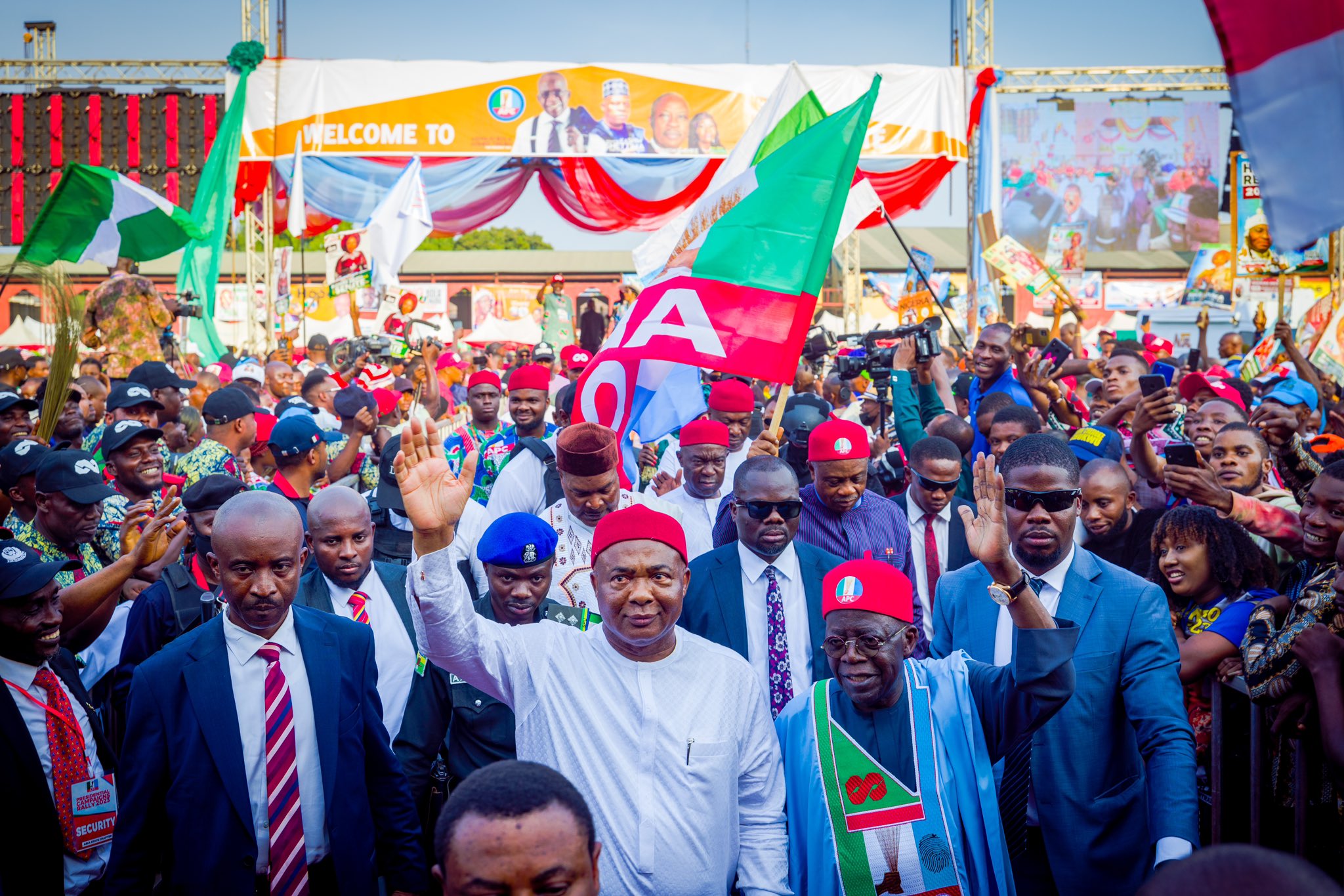
The APC retains a slightly diminished, but still solid, majority in the Nigerian Senate and a slim majority in the House of Representatives. The new National Assembly is significantly different in terms of parties represented and individual members to the outgoing legislature. At least eight parties will be represented. The APC won 57 senatorial seats, the PDP 29, the LP 6, New Nigeria Peoples Party (NNPP) and Social Democratic Party (SDP) 2 each, and the All Progressives Grand Alliance (APGA) and Young Progressive Party (YPP) 1 seat each, according to the breakdown.
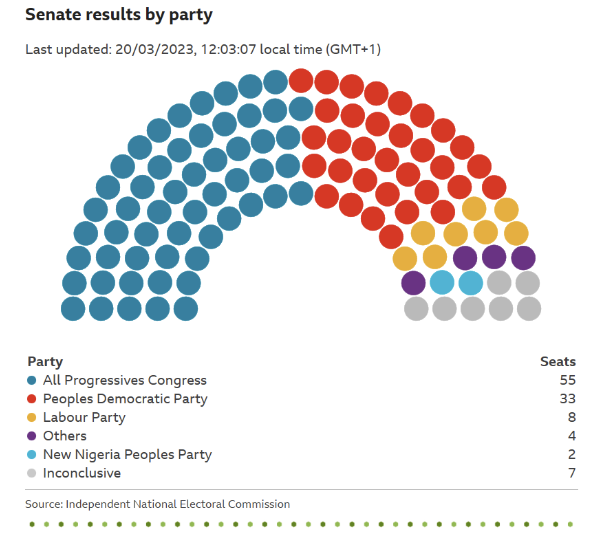
While the PDP remains the leading opposition party, Nigeria’s first-past-the-post electoral system has meant that many of the gains by the LP and smaller parties came at its expense: it has lost at least fifteen Senate seats. While the momentum for change was insufficient to overturn the Nigerian political system, it has ensured that numerous long-standing presences in the assembly have come to an end. The downside to this is that 3 of the 6 sitting female parliamentarians will depart.
Tinubu has pledged to end the fuel subsidy that costs Nigeria some $15 billion annually and use the money “more productively in joint investments with the private sector to create jobs in infrastructure, health care, education and agriculture.” He plans to focus investments in industrialization, technological innovation, improved infrastructure, and agricultural development.
To achieve this, he will face a wall of vested interests that have defeated such an initiative by every Nigerian president before him. If he forges ahead with his plan, Nigeria will face further fuel shortages and civil unrest as ordinary Nigerians run out of fuel and businesses are forced to shut down.
Restoring security will also need to be a top priority. The country faces a mosaic of security challenges, including:
- Islamist terrorism in the northeast
- Banditry and criminal gangs in the northwest,
- Separatists in the oil-rich southeast,
- Industrialised theft of oil and condensate by transnational cartels led by powerful Nigerian actors,
- Herder-farmer conflicts in the middle belt,
- Increasing levels of poverty driven violence in cities.
While Nigerian oil and gas do not have the importance for the United States it once had, events in Nigeria are still of strategic importance in Washington. Conversely, as the European Union tries to realign its strategic energy relationships away from Russia, the importance of Nigeria, already the source of about 14 percent of EU imports of gas, has increased immeasurably. Furthermore, as Nigeria’s population explodes from its current 216 million to 375 million by 2050, making the country the third most populous in the world after India and China, it will become a regional and continental heavyweight that will increasingly matter to the West. All of these factors should be major drivers of Tinubu’s new foreign policy.
Whatever he does, Tinubu will have to move fast to address the many challenges that his presidency will face. Failing to demonstrate to the youth that he is serious about developing the economy and creating opportunities for work and prosperity will likely result in a stronger Labour Party and significant social unrest. Fuel shortages, poverty, unemployment and insecurity must attract his attention as the key issues to be addressed from day one of his tenure.






